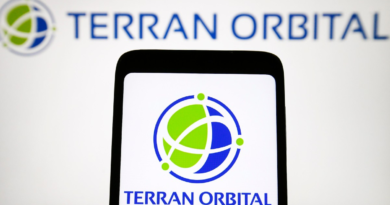The copyright issues around generative AI aren’t going away anytime soon
Generative AI has brought a host of copyright issues to the fore. Just this week, authors including George R.R. Martin, led by the Authors Guild, filed a lawsuit against OpenAI, alleging that the startup’s viral AI-powered chatbot, ChatGPT, was trained on their work without their knowledge or consent.
And it’s not just OpenAI that’s having to contend with this. Onstage at Disrupt 2023, Anastasis Germanidis, one of the co-founders of Runway, a company developing generative AI tools for video, said that his company is “still exploring” the right approach to training AI models on artists’ and creators’ works.
“We’re working closely with artists to figure out what the best approaches are to address this,” Germanidis said. “We’re exploring various data partnerships to be able to further grow … and build the next generation of models.”
Runway, like many generative AI startups, doesn’t disclose exactly where it sources the data it uses to train its models, including Gen-2, which generates videos from text prompts. In an academic paper detailing Gen-2’s architecture, Runway says only that the model was trained on an internal data set of 240 million images and 6.4 million video clips.
It could be that some of that data’s copyrighted. If it is, it might land Runway in hot water down the road.
Over the past year or so, artists have filed suit against Stability AI, Midjourney and DeviantArt, arguing that models released by the companies infringe on their copyrights by training on the artists’ works and generating outputs in their styles. Separately, Getty Images has sued Stability AI for allegedly copying and processing millions of images and associated metadata owned by Getty in the U.K.
Some companies developing generative AI tools argue that they’re protected by fair use doctrine, at least in the U.S. But it’s a matter that’s unlikely to be settled anytime soon.
To shield themselves from future legal challenges, a handful of generative AI vendors, including Stability AI, have introduced ways for artists to opt out of model training. (OpenAI just yesterday created a channel for artists to inform the company it can’t use their artwork for model training going forward.) Others have started communal funds to share some of the revenue generated by generative models with the artists whose data was used to train those models.
Runway doesn’t provide a way to opt out of training or a contributor fund. But Germanidis hinted that the company’s considering these.
“I think, for us, coming from a creative background has been key to how we’ve built this company and how we’re figuring out how to move this technology forward,” Germanidis said. “[We want] artists to feel that these products and tools work for them.”
What about the other side of the copyright debate, though — copyrighting AI-generated works? It’s an open question whether AI-generated works can be copyrighted. The U.S. Copyright Office only recently began soliciting comments on issues around generative AI and IP, and court decisions haven’t provided much clarity.
Germanidis asserted that Runway-generated content can be copyrighted, however. He stopped short of promising a policy like that recently adopted by Microsoft, which will pay any copyright-related legal damages for customers using Microsoft’s AI services. But Runway will defend customers if need be, Germanidis said.
“We’re going to adapt to whatever changes in regulation [we need to,] but artists should feel confident using the platform,” he said. “We stand behind the content they create, and it belongs to them.”



